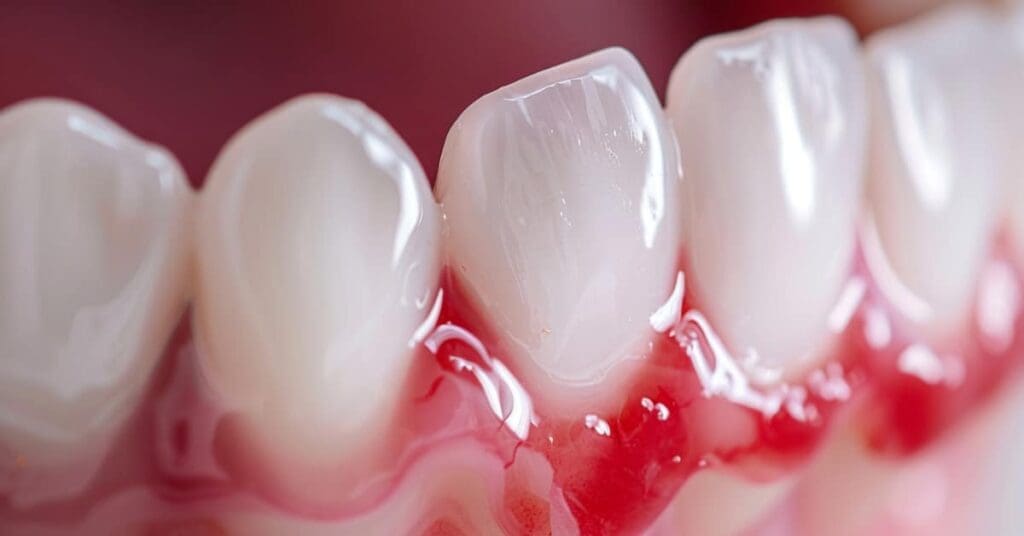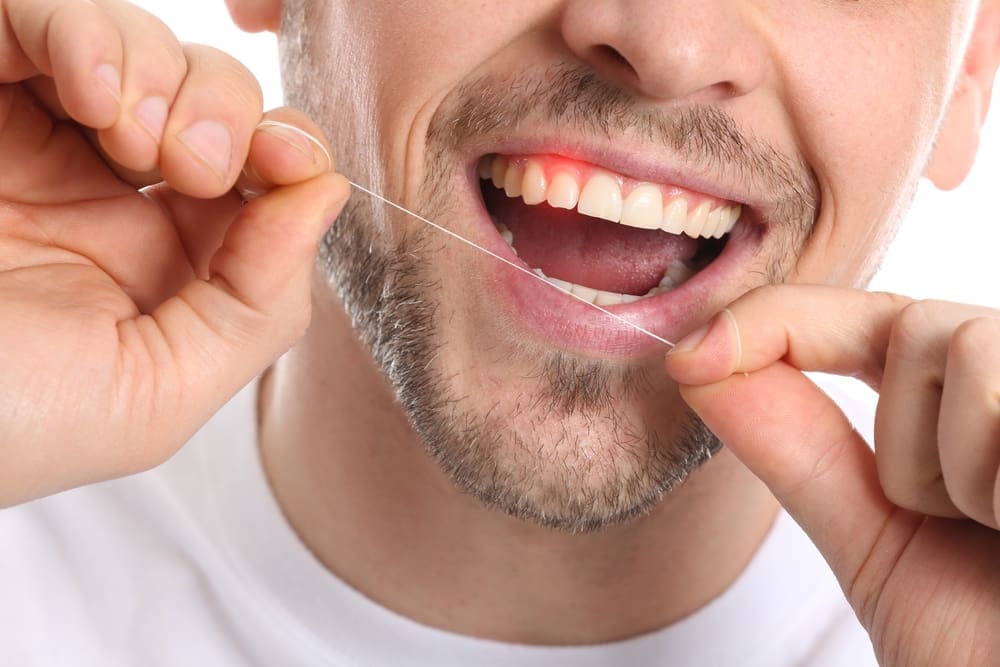Understanding the Causes of Bleeding Gums During Flossing
Oral health is a vital component of overall well-being, and one common concern that individuals may encounter during their oral care routine is when their gums bleed while flossing. This can be alarming, but understanding the various contributing factors is essential for maintaining good oral hygiene.
Here, we explore why gums bleed during flossing, considering new flossing habits, hormonal changes, medications, gingivitis, periodontitis, poor nutrition, wearing dentures or bridges, and rare medical conditions.
Why Do My Gums Bleed When I Floss?

New Flossing Habits
Switching to a new flossing routine or using a different type of floss can be a common reason your gums bleed. Abruptly introducing a more rigorous or unfamiliar technique may lead to irritation and inflammation of the gums. It’s crucial to floss gently and consistently, allowing the gums time to adjust to the new routine.
Hormonal Changes
Hormonal fluctuations, particularly in women, can profoundly impact gum health. Puberty, pregnancy, menstruation, and menopause are periods when hormonal changes are prominent. Increased levels of hormones can heighten gum sensitivity, making them more susceptible to inflammation and raising the chances of bleeding when flossing.
Medications
Some medications, including anticoagulants, antiplatelet drugs, or those inducing dry mouth as a side effect, can play a role in causing bleeding gums. Anticoagulants and antiplatelet medications disrupt the blood’s clotting mechanism, rendering the gums more prone to bleeding. Medicines that diminish saliva production may result in dry mouth, fostering an environment conducive to gum irritation and bleeding.
Gingivitis
Gingivitis is an early stage of gum disease characterized by inflammation of the gums. Plaque buildup along the gumline, containing bacteria and debris, can trigger gingivitis. Flossing may cause bleeding due to the heightened sensitivity of inflamed gums when introduced or resumed after a period of neglect. Consistent oral care and professional cleanings are crucial in preventing and managing gingivitis.
Periodontitis
Should gingivitis go unaddressed, it may advance to a more severe stage referred to as periodontitis. Periodontitis encompasses inflammation and infection of the supportive structures around the teeth, including the underlying bone. This progression can lead to bleeding gums. When gums bleed during flossing, it can be a sign of advanced periodontitis, as the gums become more prone to bleeding and may recede, exposing the tooth roots. Seeking prompt dental intervention is essential to prevent further damage.
Poor Nutrition
Maintaining overall health, including oral well-being, hinges significantly on nutrition. Deficiencies in vitamins, notably vitamin C, have been associated with gum-related issues. Inadequate consumption of nutrients supporting gum health can heighten the vulnerability of gums to bleeding. Ensuring a balanced diet rich in vital vitamins and minerals and excellent oral hygiene practices is crucial to warding off nutritional deficiencies that could lead to bleeding gums.
Wearing Dentures or Bridges
Individuals wearing dentures or bridges may still experience bleeding gums during flossing. Even though these dental appliances replace missing teeth, maintaining healthy gums is crucial. Food particles and bacteria can accumulate around dentures and bridges, leading to irritation and inflammation of the surrounding gums. Regularly cleaning both dental appliances and the gums is necessary to prevent bleeding.
Rare Medical Conditions
Some medical conditions can contribute to bleeding gums, even during routine activities like flossing. A few are:
- Blood disorders: Hemophilia and Leukemia
- Autoimmune diseases: Von Willebrand disease and Thrombocytopenia
- Scurvy: caused by severe vitamin C deficiency.
In these cases, collaboration between dental professionals and other healthcare providers is essential to manage oral health in the context of the broader medical condition.
Navigating the Path to Gum Health
Understanding the multifaceted reasons behind bleeding gums during flossing is crucial for effective prevention and management. Maintaining a consistent oral care routine, including proper flossing techniques, regular dental check-ups, and addressing underlying health issues, is vital to achieving optimal gum health. By considering the factors we have explored, individuals can take proactive steps toward ensuring their gums remain healthy and free from bleeding.
Taking proactive steps toward oral health is crucial if your gums bleed when flossing or you have other dental concerns. Contact Dr. Paul Feldman, a top-rated dentist at Suburban Essex Dental, to schedule an appointment. Whether addressing specific issues or booking a routine dental checkup, Dr. Feldman’s expertise ensures comprehensive care for a healthier smile. Don’t delay – prioritize your dental well-being today.







